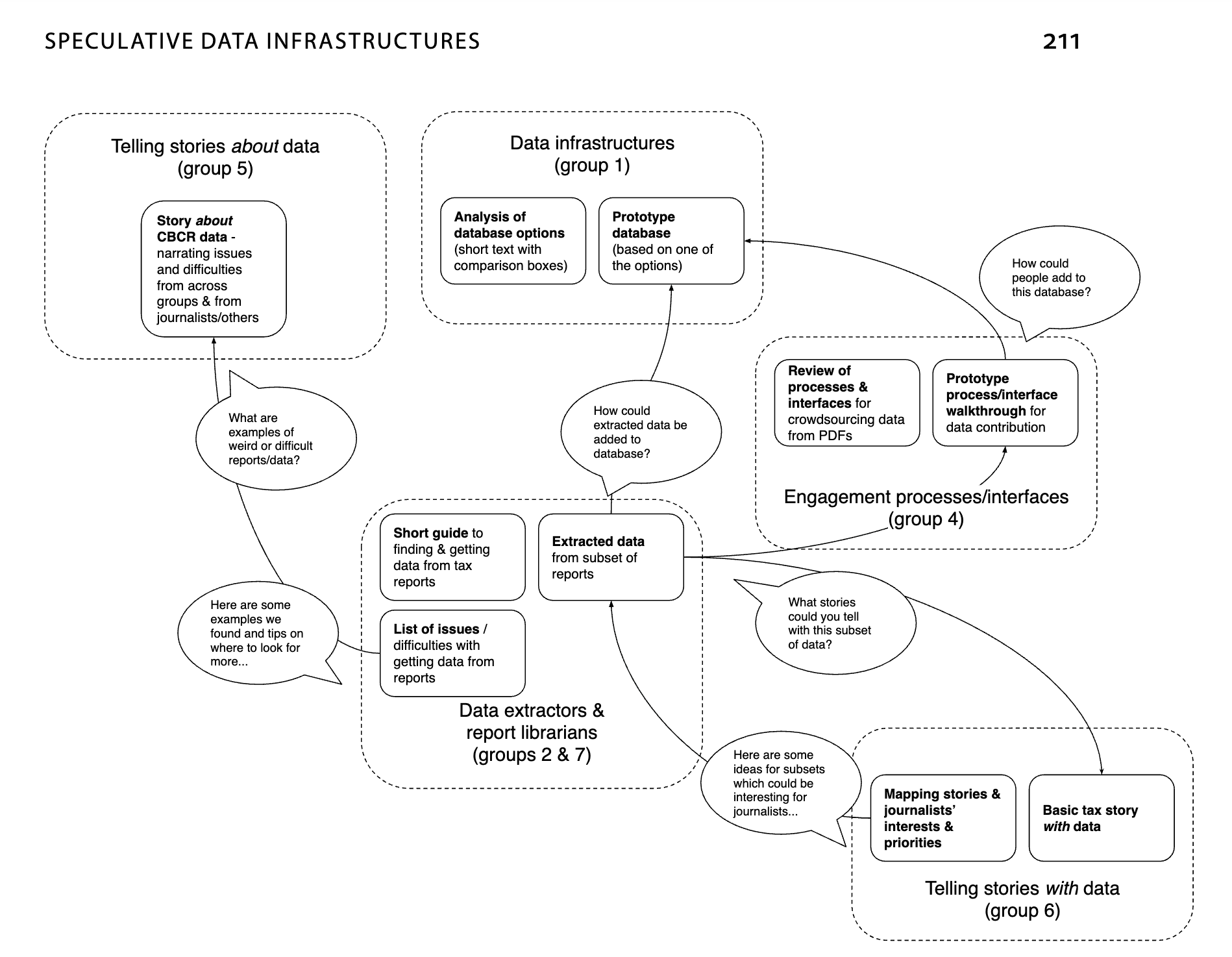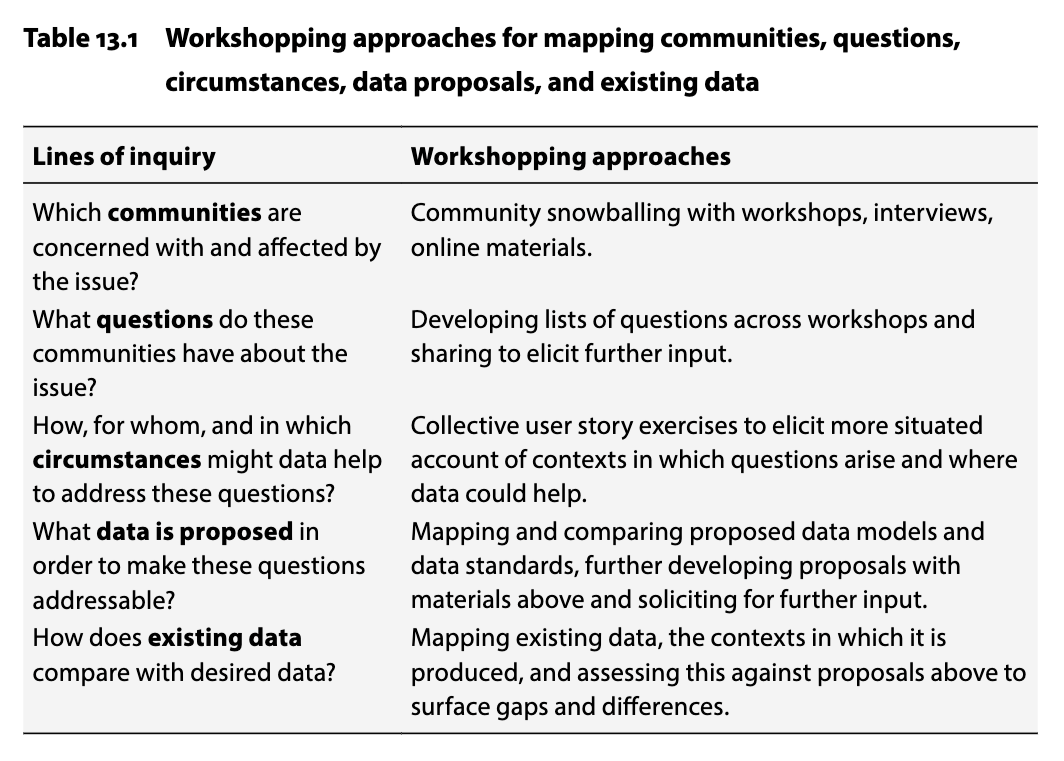new chapter on "Speculative Data Infrastructures: Prototyping a Public Database on Corporate Tax Avoidance"
October 11, 2024

How much tax are multinational corporations avoiding? What kinds of public data infrastructures might enable us to find out? How can civil society groups, reporters, researchers, teachers and students work together to explore this through speculative design, prototyping and critical data practices?
A new chapter on “Speculative Data Infrastructures: Prototyping a Public Database on Corporate Tax Avoidance” has just been published in a new open access book on Collaborative Research in the Datafied Society: Methods and Practices for Investigation and Intervention co-edited by Mirko Tobias Schäfer, Karin van Es and Tracey Lauriault.
You download the book here and the chapter here.
Here’s the abstract for the chapter:
This chapter examines and reflects on three ways of workshopping ‘data in the making’ – redesigning, prototyping, and interfacing – drawing on activities leading towards a collaborative public database on the economic activities and tax contributions of multinational corporations. It examines how prototyping data infrastructures may serve as a method to engage with organizations, groups, and communities who are concerned with or affected by an issue, in order to materialize problems and to support learning which may go on to inform advocacy, policy, and reporting activities. It draws on ‘engaged research-led teaching’ activities with King’s College London, the Public Data Lab, and the Tax Justice Network to consider formats for critically engaging with data as a medium for issue articulation.

And here’s the blurb for the book:
The influence of austerity measures and neoliberal ideologies has sparked discussions about the relevance and value of academic institutions, particularly in the humanities and social sciences. Universities are redirecting academic focus towards greater societal engagement. This book argues that academia has much to gain by moving beyond its institutional walls, in our case, by doing data work with stakeholders and civil society. This collaborative work benefits citizens in our democratic, open societies and advances our knowledge economies. Collaborative Research in the Datafied Society offers a combination of theoretical insights, practical methodologies, and case studies, showcasing the power of collaborative research with stakeholders across diverse communities and civil society to tackle challenges that address pressing issues stemming from data practices and social justice issues. Taken together, the book’s chapters formulate relevant concepts for grounding societally engaged research in the theories and methodologies from different disciplines. In addition, the book informs university administrators and research directors how to advance academia effectively towards mutual knowledge transfer with societal sectors.